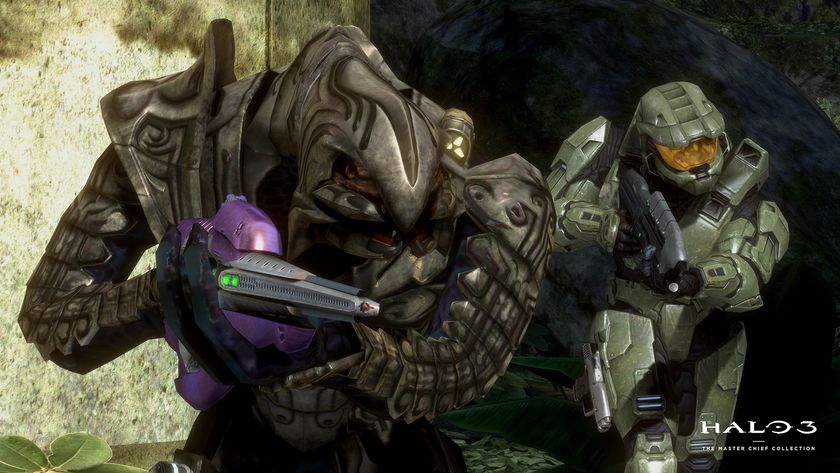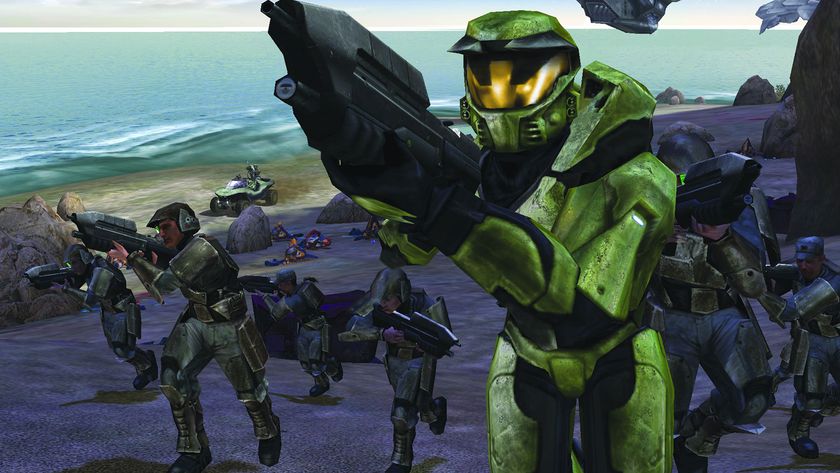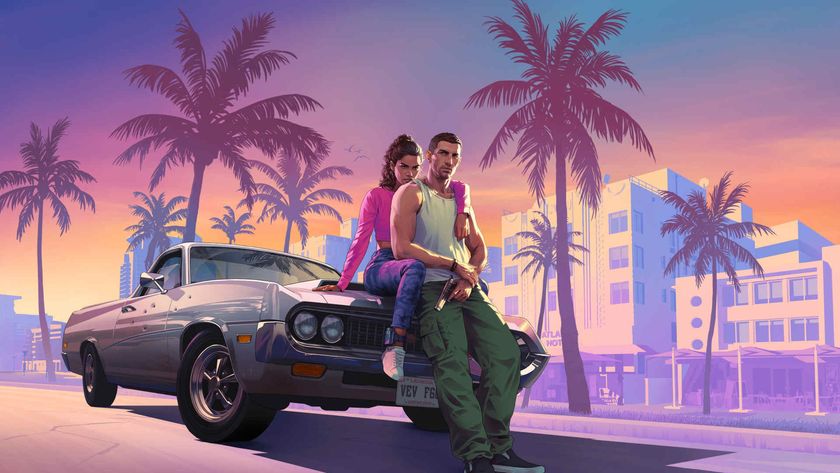Halo Infinite has taken me and my friends back to 2007
Halo Infinite's free-to-play multiplayer has made it widely accessible and the topic of conversation once more
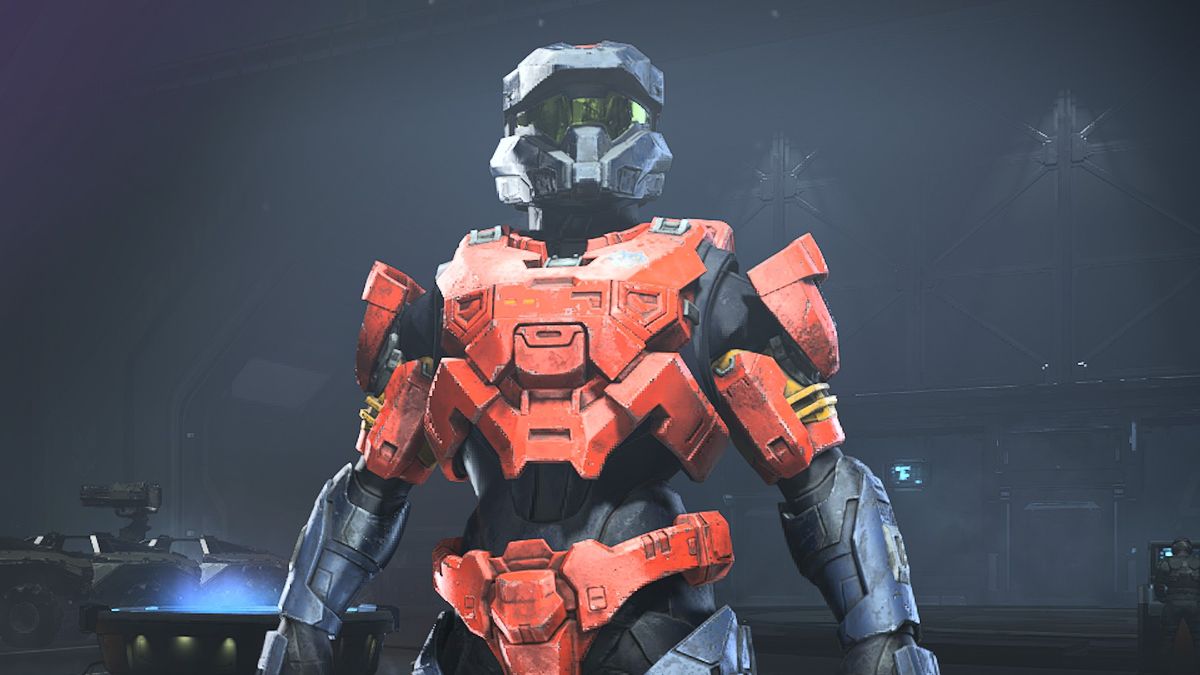
2007 was a simpler time. The Xbox 360 had been out for two years, franchises weren't releasing new games every fiscal year, and Microsoft's Halo was bigger than some blockbuster films. So when Halo 3 dropped on September 25, 2007, it dominated the cultural conversation – it felt like everyone I knew had access to it and wanted to play.
With social media still in its infancy and random online matchmaking still dangerous territory for young women, my high school classmates and I would make plans during the day to team up on Halo 3 once we got home. I'd spend 20 cents texting my teammates (two guys both named Steve), and we'd run matches until my mom told me to go to bed.
In 2021, things are different. Players are struggling to get their hands on the Xbox Series X due to microchip shortages, a new Call of Duty title drops every 12 months, and Marvel movies make more money than anyone can really fathom. But, in the midst of all this, Halo Infinite has managed to catapult us back to 2007 by offering a free-to-play multiplayer that transcends most socioeconomic boundaries. It has brought Halo back into the foreground of the cultural conversation, engaging professional and casual gamers alike in a way I haven't seen since Apple was perhaps best known for making MP3 players.
The friend appeal
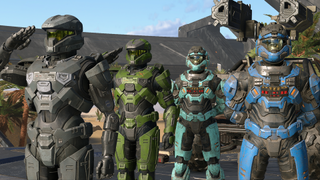

The Halo rifle debate is dead, long live the Halo Infinite battle rifle
Most of my IRL friends don't play video games as often as I do, which makes sense as it's not their job to do so. I'll get the occasional text asking if I endorse the purchase of a new single-player title, or an Instagram message inquiring about the current state of Apex Legends, but for the most part my gaming life exists simultaneously with my work life, and my personal life is instead tied to bars and sports.
Halo Infinite has changed all of that. From the moment 343 Industries surprise-dropped the free-to-play multiplayer, my phone has been inundated with messages from friends that I'd only ever consider casual gamers, if even that. Within hours of the launch, I received texts like, "yo, should I get a Series S right now?" and "what's your gamertag?"
Within a day of the surprise release, I was juggling game sessions with friends I made when I lived in England, friends I've known for decades, my friends' partners, and even randoms I'd exchanged info with during a night out once upon a time. Then there was the score of industry friends who were using Twitter and Discord to exchange gamertags and set up sessions, which translated to a near-constant lineup of Halo matches. People who I have worked alongside for well over two years are now reaching out to set up Halo hangs, messaging me on Slack to inquire about my schedule, or tweeting at me to join up. In my time in the games industry, I have yet to experience an almost uniform preoccupation with a multiplayer game – and there are, of course, plenty of other free-to-play titles out there.
There is something special about Halo Infinite. During a session with Motherboard's Gita Jackson, she wondered aloud if Halo Infinite was what we needed in this precise moment in history. "Animal Crossing was our social space at the start of the pandemic, Halo Infinite is ours two years in," she said as we struggled to collect power cells in a Stockpile match. The squad began joking that we just wanted to "shoot shit" after nearly two years of dealing with COVID-19, and that's certainly part of the allure – but what makes Halo special is that it offers so much more than that.
Sign up to the 12DOVE Newsletter
Weekly digests, tales from the communities you love, and more
The social space

Halo makes for hilarious and memorable multiplayer moments because of its fun and, at times, absurd game physics. It's hard not to laugh when a seven-foot-tall supersoldier ragdolls across a chasm, flipping end-over-end like a discarded plaything from Toy Story. And it's impossible to not feel a need to share that feeling with your friends, to show them that ridiculous clip or attempt to re-enact a physics-breaking maneuver.
But it was Halo 3's debut at the peak of the Web 2.0 shift (which saw the creation of sites like YouTube, Reddit, Facebook, and Twitter), that made it as much of a social movement as it was a game. In 2007, more and more players could create their own gameplay clips or capture hilarious moments and upload them to the internet, which resulted in a slew of Halo content at every fan's fingertips.
YouTube videos like 100 ways to die in Halo 3 or best Halo 3 kill ever have millions of views and thousands of comments, indicative of a subculture that exists at the intersection of Halo and the internet. I myself would spend hours in search of funny clips or lengthy videos offering tips, sending the best ones to my teammates via AOL Instant Messenger or email.
With the advent and increased popularity of TikTok and meme accounts, Halo Infinite feels like it's creating a similar overarching subculture to the one Halo 3 spawned way back when. My friends and I text each other links to ridiculous trick shots, hilarious death compilations, and tips on how to maximize the efficiency of the Cindershot. I have multiple group chats going that are either a barrage of Halo Infinite memes or single-line texts of "u on?" I haven't felt this plugged into Halo since I was in high school, and I'm very far out of high school.
In a world of dwindling attention spans and near-constant game releases and updates, several chords must be struck at precisely the right time to successfully create a gaming zeitgeist. Halo 3 did just that in 2007, and Halo Infinite feels like it's in the midst of that again in 2021. My Twitter feed, my TikTok FYP (for you page), my Instagram inbox, my conversations at the bar – all are dominated almost exclusively by Halo Infinite. But this isn't surprising. 343 Industries captures the feel of the best Halo installments and gives that feeling away for free. No wonder we can't stop talking about it.
Halo Infinite ranked is going to ruin my life and I'm okay with it.
Alyssa Mercante is an editor and features writer at GamesRadar based out of Brooklyn, NY. Prior to entering the industry, she got her Masters's degree in Modern and Contemporary Literature at Newcastle University with a dissertation focusing on contemporary indie games. She spends most of her time playing competitive shooters and in-depth RPGs and was recently on a PAX Panel about the best bars in video games. In her spare time Alyssa rescues cats, practices her Italian, and plays soccer.

